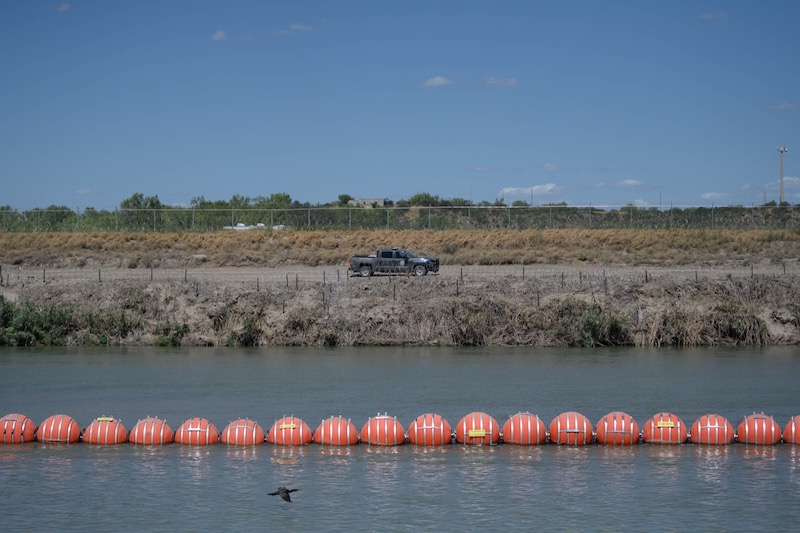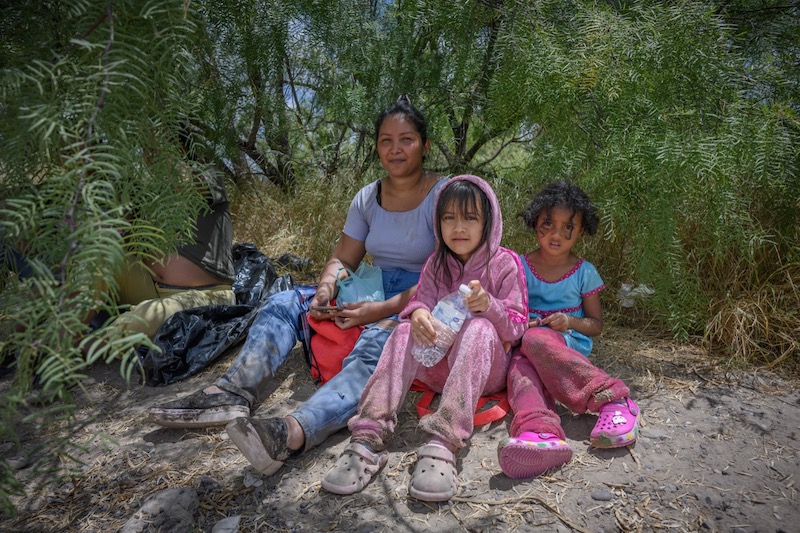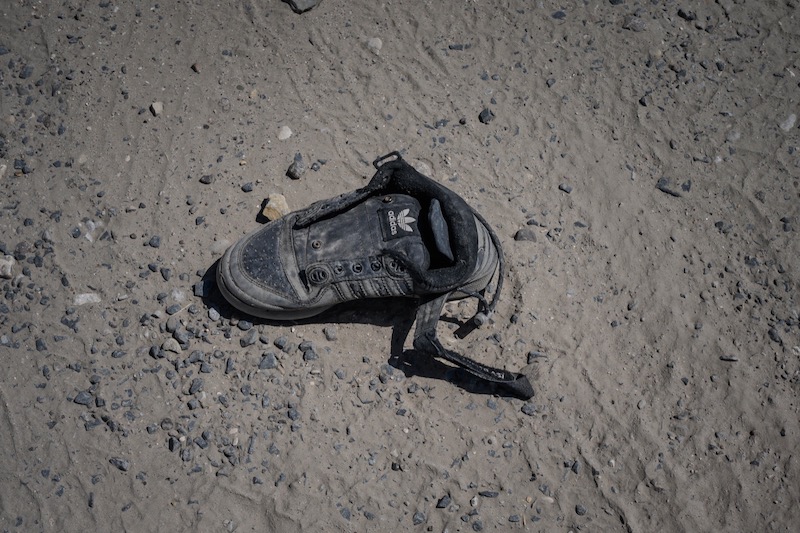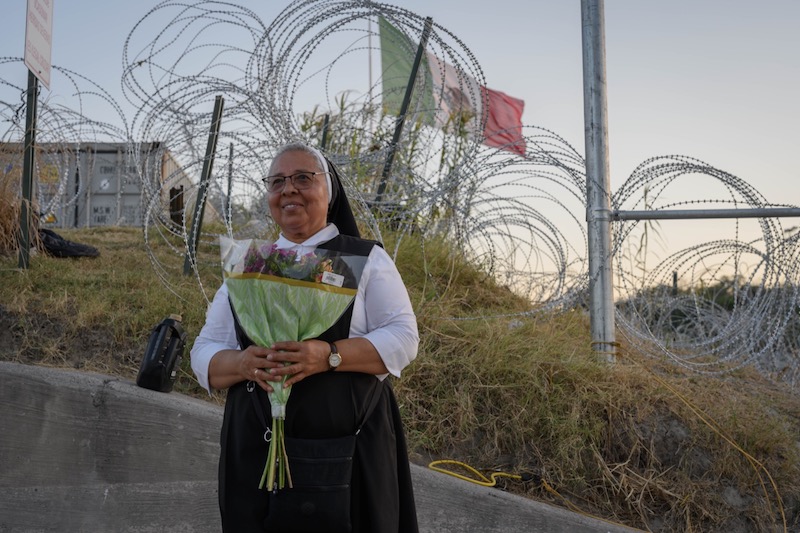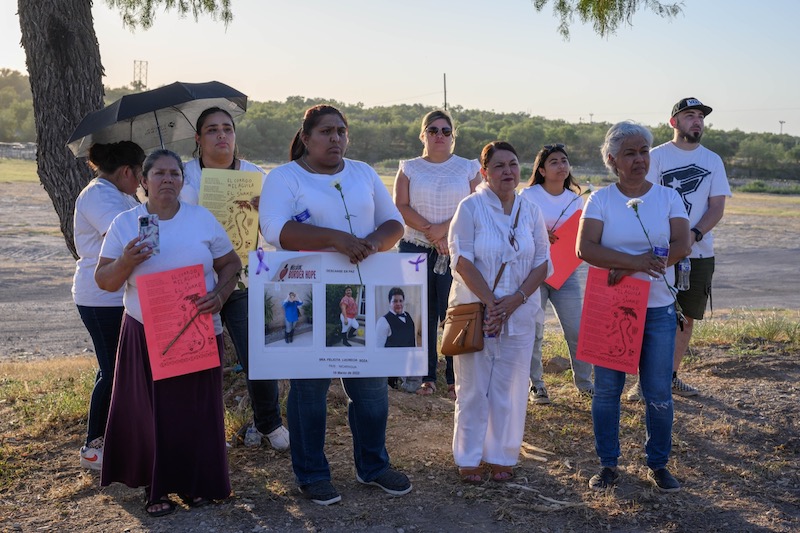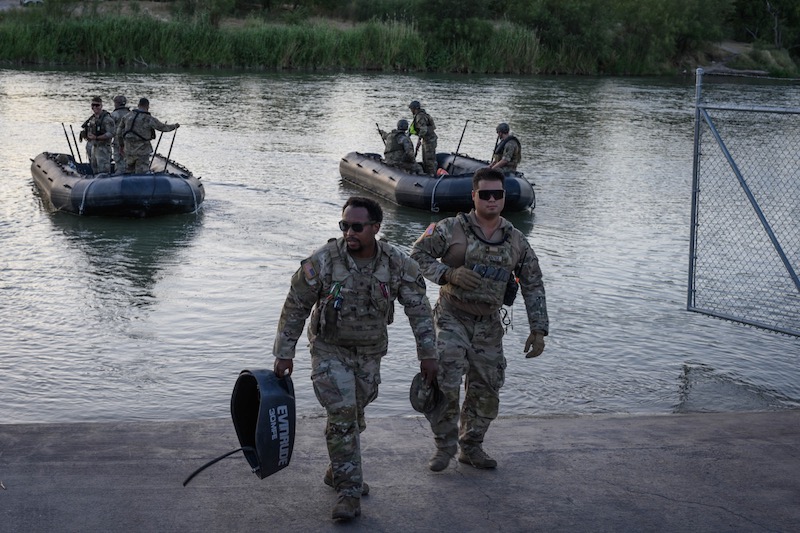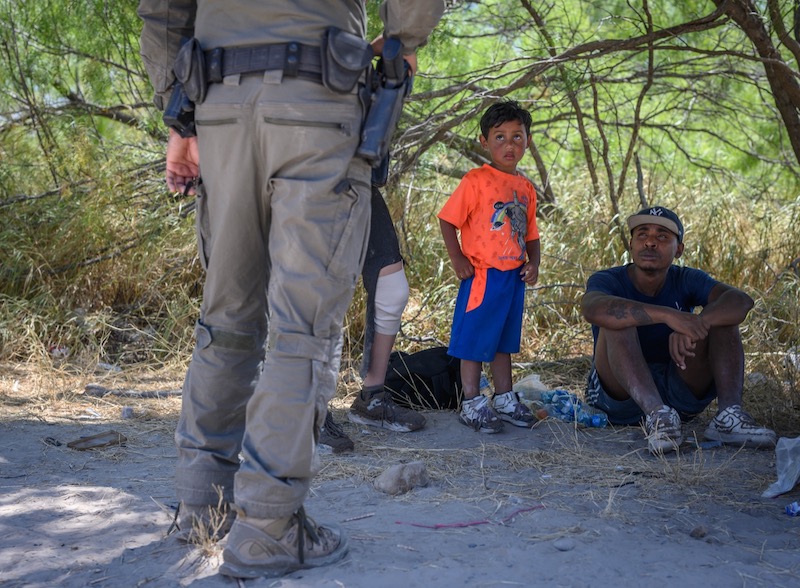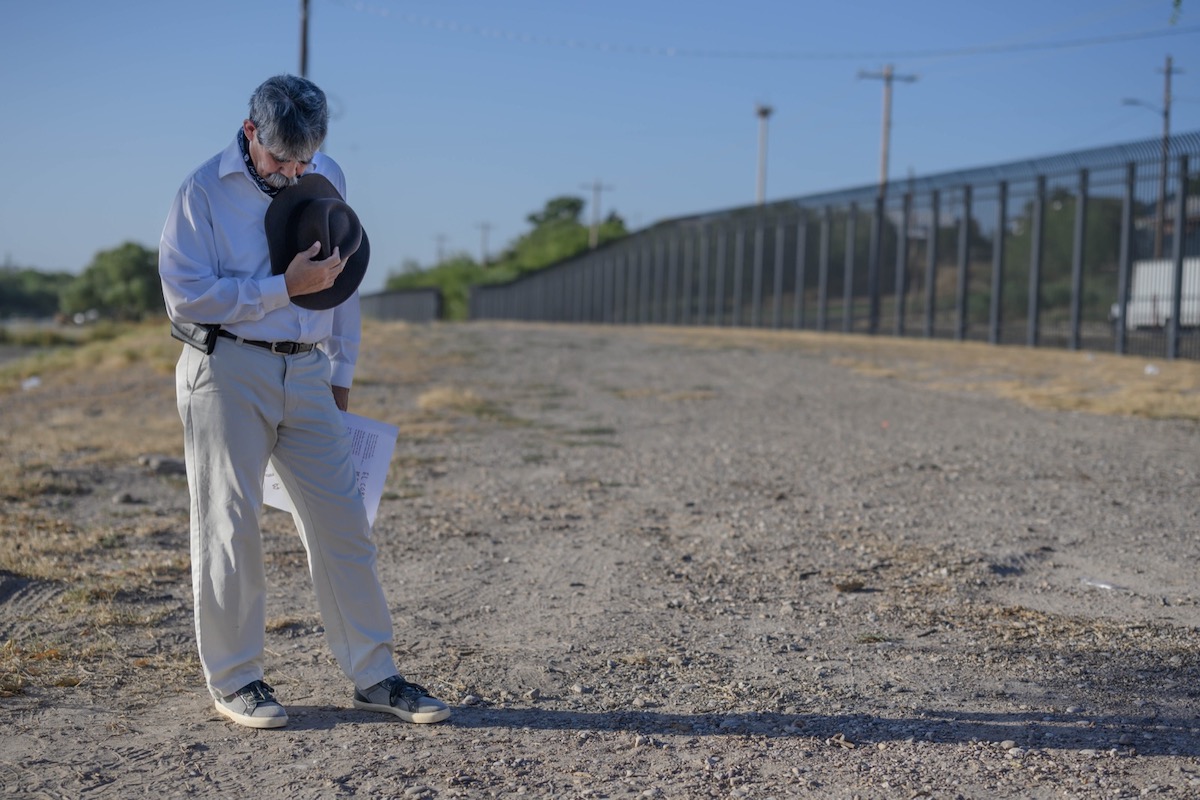Above: Jessie Fuentes stands during an August 7 vigil organized by residents of Eagle Pass to protest Gov. Greg Abbot’s policies and to remember migrants who died crossing the Rio Grande. Fuentes is the owner of a kayak business in Eagle Pass, which he started after he retired in order to offer tours of the river. According to Manuel Ortiz, Fuentes is a deeply spiritual man and a lover of nature. He sees Abbot’s barriers as a violation of life, both of the people and of the natural world. “What the government is doing here is killing the river… They are destroying our community.” (Credit: Manuel Ortiz)
“When you approach Eagle Pass from San Antonio, there’s nothing for miles… then you hear the helicopters.”
That’s how photojournalist and Peninsula 360 founder Manuel Ortiz describes this tiny Texas city that is now the latest flash point in the ongoing fight over U.S. immigration policy. What was once “el pueblo de paso,” says Ortiz – a town to pass through – has now been invaded, and not by migrants.
“Everywhere you go you see law enforcement officers, border patrol agents, soldiers” says Ortiz, who describes setting up his laptop at a local Starbucks to join an Aug. 4 briefing on the situation at the border. “It was full of police and border agents. That’s why I had to set up at one of the tables outside.”
The scene Ortiz describes is the result of Texas Gov. Greg Abbot’s increasingly harsh policies intended to curb the daily flow of migrants arriving at the U.S. southern border, most of them women, children, mothers, and fathers fleeing dire conditions in their home countries.
Ortiz’ photos, taken during a recent trip to the region, paint a stark portrait of the hope and desperation driving migrants, on the one hand, and the brutal measures advocated by officials like Abbot and presidential hopeful Ron DeSantis of Florida, on the other. Floating, spike tipped barriers interspersed with circular saws and razor wire line stretches of the Rio Grande separating Eagle Pass from Piedras Negras on the Mexican side, while all around the scorched terrain lie the detritus of passing migrants; discarded shoes worn to shreds, emptied water bottles.
An exhausted three-year-old gazes up at a state trooper, his father and mother – their faces burned by the sun – squat in the shade of a tree, gently assuring him that food will be coming. They wait, hopeful yet uncertain.
But, says Ortiz, this is a community with deep and historic ties that transcend the border, ties that won’t be severed by floating death traps and razor wire – images one would normally associate with places like the DMZ separating North and South Korea. Indeed, he says, Eagle Pass residents are fighting back, even erstwhile Abbot supporters who now say his policies have gone too far.
People like Jessie Fuentes, who runs a kayaking business in Eagle Pass, or Madre Isabel Turcio, director of Casa Frontera Digna in Piedras Negras – where up to 100 migrants a day are sheltered and fed – are organizing in protest against measures they describe as inhumane, measures designed to inflict bodily harm on exhausted and impoverished people who – as have generations of people before them – sought shelter, safety and the chance for a better life in the U.S.
“This country was made by migrants,” says Ortiz. “And what Abbot is doing is treating migrants as the enemy. He is waging a war on migrants who are the very same people who built this country.”
